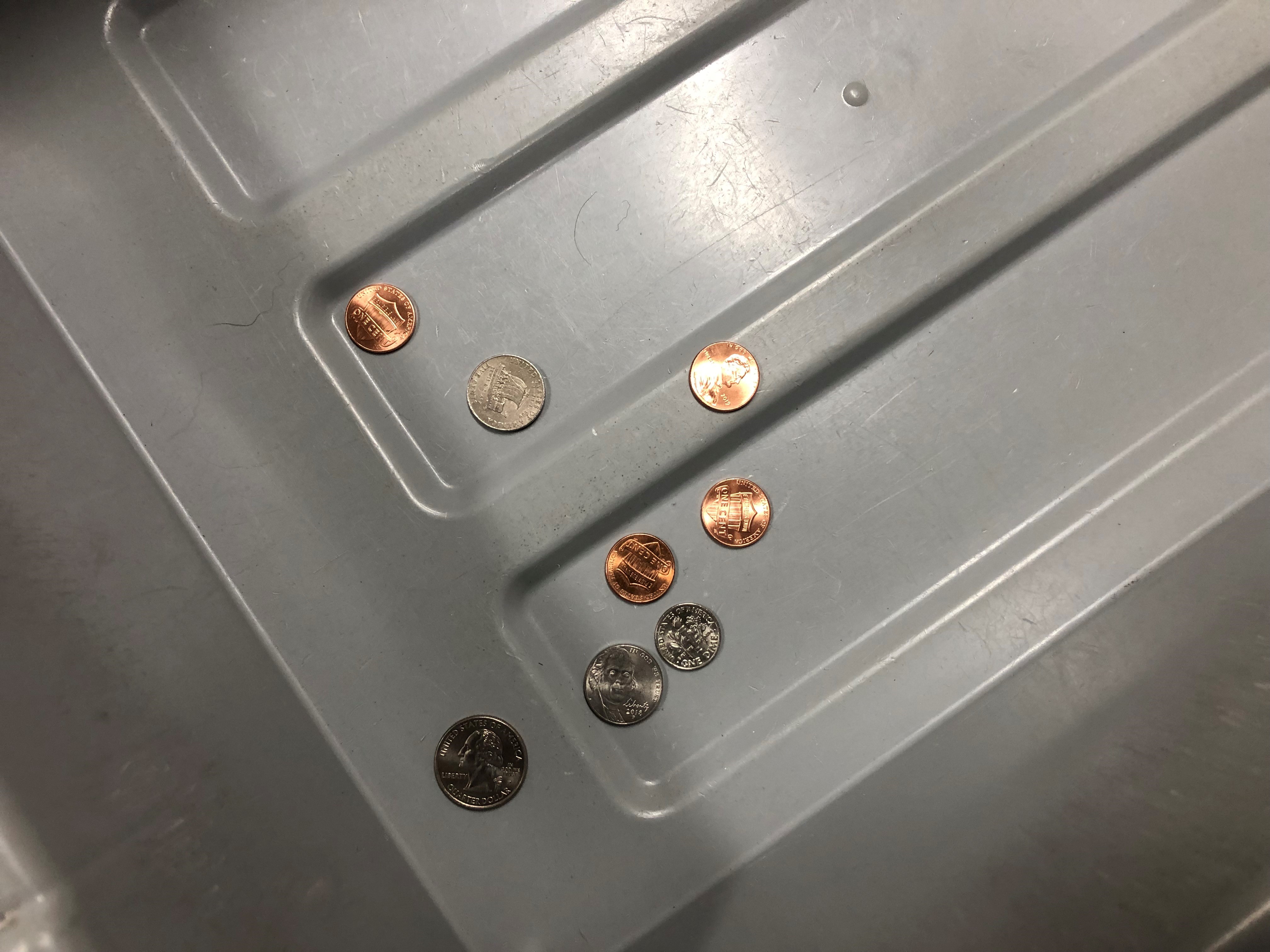
WASHINGTON – The Transportation Security Administration collected $926,030.44 in unclaimed money that passengers left behind at airport security checkpoints during Fiscal Year 2019, including $18,899.09 in foreign currency.
The money consisted of loose change and paper currency that passengers removed from their pockets and left behind in a bin during the security screening process at TSA checkpoints. The amount found during FY19, which ended September 30, 2019, marked a decrease in the amount of unclaimed money collected in FY18 when $960,105.49 was left behind.
When passengers approach the checkpoint, all items from pockets must be removed, including wallets and loose change. TSA recommends that travelers place those items directly into their carry-on bags so that they will not accidentally leave anything behind in a bin.
The top five airports where passengers have left the most money behind were:
- John F. Kennedy International Airport - $98,110
- San Francisco International Airport - $52,668.70
- Miami International Airport - $47,694.03
- McCarran International Airport - $44,401.76
- Dallas/Fort Worth International Airport - $40,218.19
It is always TSA’s goal to reunite travelers with items they have left behind at checkpoints. If someone returns to the checkpoint within a short timeframe to claim an item that they left behind, it is easily returned to them. If a passenger leaves an item behind, such as a wallet, and does not realize it until after they board their flight, they can contact any of TSA’s lost and found offices at airports across the country to identify the lost item.
For a complete list, visit the report “Unclaimed Money at Airports in Fiscal Year 2019.” TSA compiles a report each fiscal year as required by law. The unclaimed money found at TSA checkpoints was deposited into a special fund account for providing critical aviation security programs.

